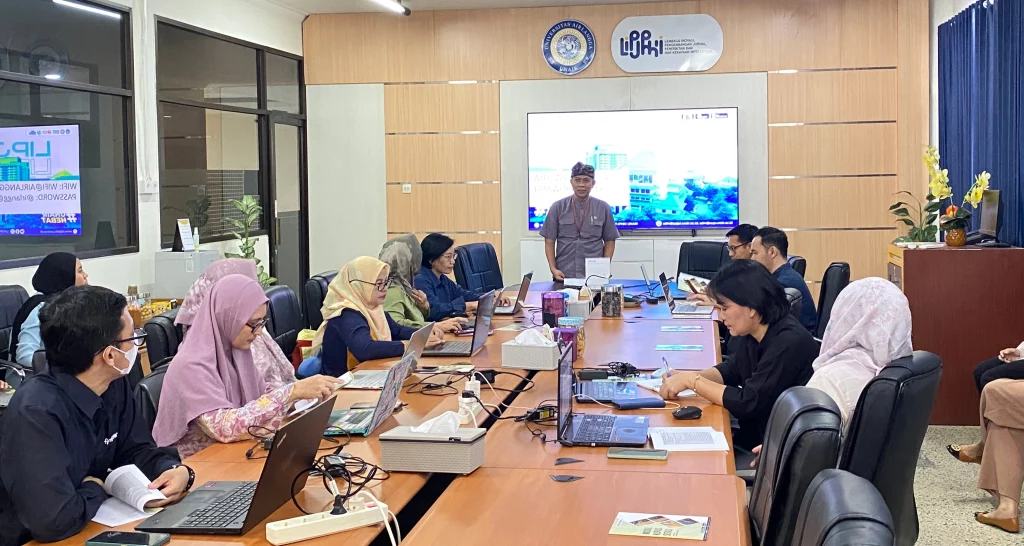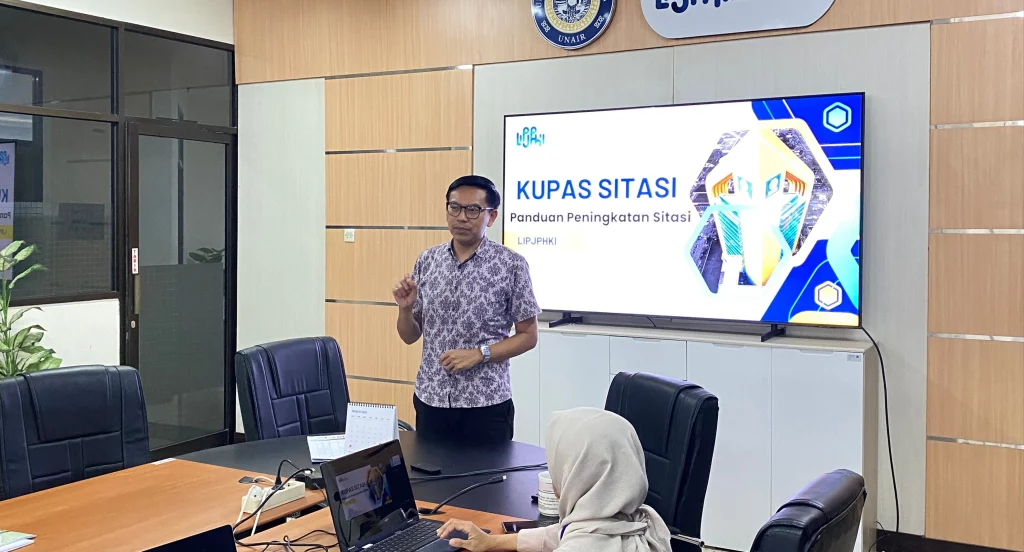UNAIR NEWS – The Institute for Innovation, Journal Development, Publishing, and Intellectual Property Rights (LIPJPHKI) at Universitas Airlangga (UNAIR) hosted the March 2025 edition of its Citation Review Workshop. Held on Tuesday (March 25, 2025) in the AUP Meeting Room, LIPJPHKI Building, 2nd Floor, MERR-C Campus, UNAIR, the event brought together faculty members and students from various disciplines to discuss strategies for increasing citation rates and strengthening the academic visibility of their research.
In his opening remarks, Head of LIPJPHKI, Prof. Hery Purnobasuki, Ph.D., stressed that publishing a paper is just the beginning of an academic’s responsibility. Authors must actively promote their work to maximize citations and improve their H-index, both crucial measures of research impact. “A high H-index significantly contributes to institutional accreditation and career progression within academia,” he noted.
The workshop featured keynote speaker Prof. Ferry Efendi S. Kep., Ns., M.Sc., Ph.D., who emphasized that managing citations effectively starts with ensuring that published work aligns with the author’s expertise. He also highlighted key citation tracking tools such as Scopus, Web of Science (WoS), Google Scholar, and SINTA, which are commonly used to assess the impact of academic journals.
Evaluating research impact
Prof. Efendi outlined three primary levels of citation impact measurement. At the author level, citation counts from indexing platforms like Scopus and Google Scholar are analyzed using metrics such as the H-index and i10-index, which indicate how frequently a researcher’s work is cited. At the article level, citation performance is assessed through the Field-Weighted Citation Impact (FWCI), where a global benchmark value of 1 serves as the standard. A score below 1 suggests limited impact, while a higher value indicates greater influence. At the journal level, impact is measured by the Journal Impact Factor (JIF), which reflects how often articles from a particular journal are cited in other scholarly publications.

Collaboration importance
During the discussion, Prof. Efendi underscored the strategic role of collaboration in increasing citations. He suggested that researchers establish professional networks to encourage reciprocal citations, provided that they adhere to ethical academic standards, ensuring citations remain accurate, relevant, and proportionate.
The workshop’s most engaging session was a hands-on exercise led by Rifky Octavia Pradipta, S. Kep., Ns., M. Kes., where participants accessed their Scopus accounts and calculated their H-index in real time.
By hosting this workshop, LIPJPHKI UNAIR aims to empower academics with the knowledge and tools necessary to enhance the reach of their research in an ethical and effective manner. This effort not only strengthens the national academic landscape but also contributes to the global body of scholarly knowledge.
Author: Panca Ezza Aisal Saputra
Editor: Ragil Kukuh Imanto









